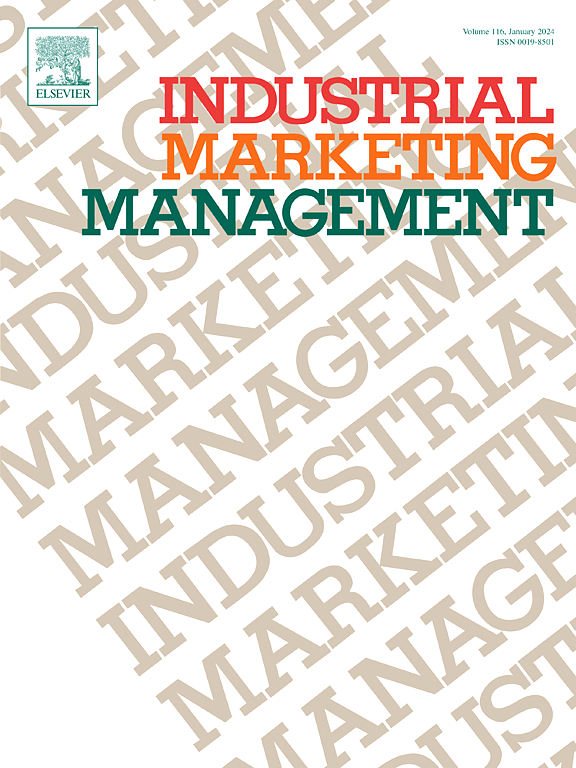Salesperson emotional intelligence at work: A resource-based perspective of subjective well-being determinants and organizational outcomes
IF 7.8
1区 管理学
Q1 BUSINESS
引用次数: 0
Abstract
The purpose of this research is to integrate two frameworks, conservation of resources and broaden-and-build, to explain how positive psychology constructs (namely self-emotional intelligence, meaningful work, and flow) impact salesperson subjective well-being and, subsequently, outcomes relative to performance, organizational citizenship behavior, and turnover intention. Since employee well-being has become a persistent issue, and only recently has attention been devoted to this topic in the sales domain, understanding the drivers and outcomes of well-being is an important contribution to sales research. A need exists to understand how work condition resources impact well-being, as well as ways in which those might be enhanced (moderators). We explore a new perspective on emotional intelligence, self-emotional intelligence, as one possible personal resource that could impact how work conditions impact well-being. A sample of 195 business development and account management salespeople were surveyed, and the data was analyzed using partial least squares structural equation modeling to confirm nine of ten predictions. Our results suggest that the positive psychological resources of salesperson self-emotional intelligence, meaningful work, and flow drive salesperson subjective well-being, and this positive emotional state supports better sales performance, higher organizational citizenship behavior, and lower turnover intention. Further, salesperson self-emotional intelligence plays a limited role in moderating the drivers of salesperson subjective well-being.
求助全文
约1分钟内获得全文
求助全文
来源期刊

Industrial Marketing Management
Multiple-
CiteScore
17.30
自引率
20.40%
发文量
255
期刊介绍:
Industrial Marketing Management delivers theoretical, empirical, and case-based research tailored to the requirements of marketing scholars and practitioners engaged in industrial and business-to-business markets. With an editorial review board comprising prominent international scholars and practitioners, the journal ensures a harmonious blend of theory and practical applications in all articles. Scholars from North America, Europe, Australia/New Zealand, Asia, and various global regions contribute the latest findings to enhance the effectiveness and efficiency of industrial markets. This holistic approach keeps readers informed with the most timely data and contemporary insights essential for informed marketing decisions and strategies in global industrial and business-to-business markets.
 求助内容:
求助内容: 应助结果提醒方式:
应助结果提醒方式:


